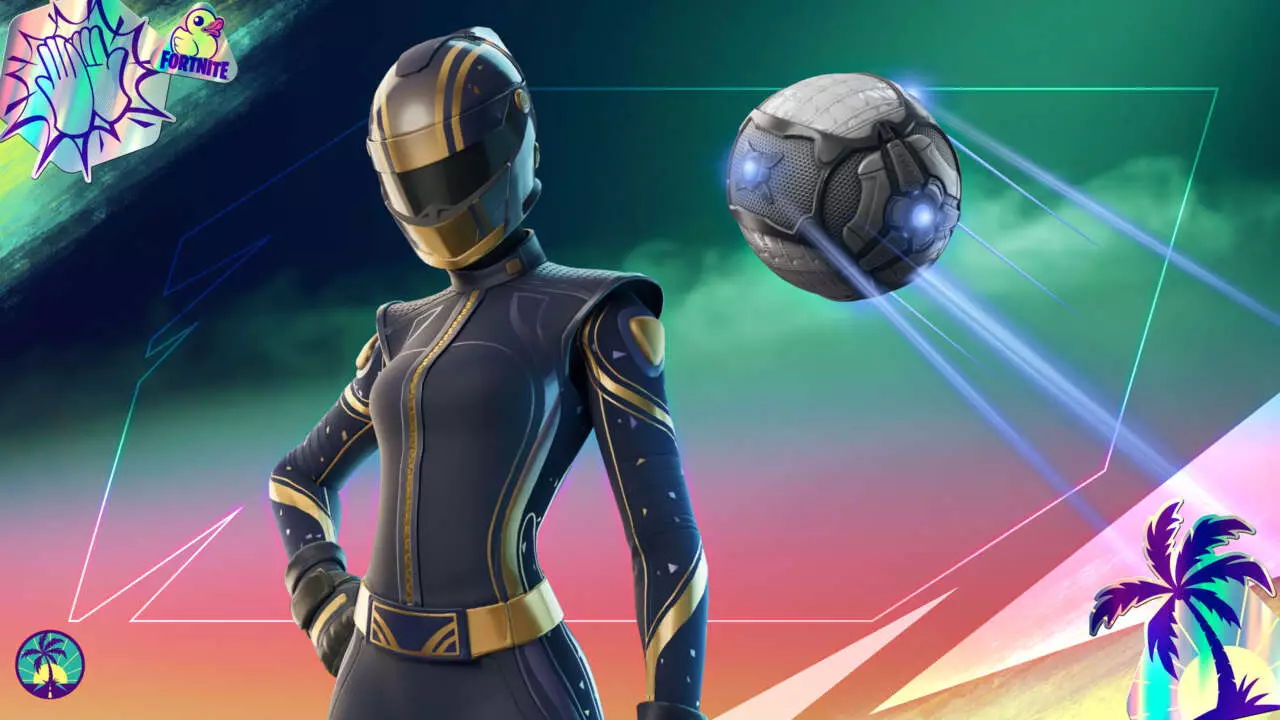Summer events in gaming often serve as fleeting distractions, but this year, Rocket League and Fortnite elevate the concept to a new level. Their joint Summer Road Trip is more than just a promotional stunt; it’s a bold statement that interconnected gaming experiences can deepen player engagement and foster a sense of community across diverse player bases. The event’s core attraction—a sleek Chevrolet Corvette ZR1—is a potent symbol of this integration, serving as a coveted prize that blurs the lines between vehicular combat, competitive sports, and battle royale excitement.
What truly distinguishes this crossover isn’t just the inclusion of a fancy new vehicle but the strategic blending of content to incentivize players of both games to step outside their usual routines. Epic Games’ decision to add exclusive rewards—such as Fortnite skins and emotes tied to Rocket League achievements—demonstrates a calculated effort to leverage Nintendo-like platform synergy. This approach transforms what could have been simple seasonal loot into a multifaceted experience, pushing players to explore unfamiliar gameplay modes and diversify their interests.
Rather than settling for superficial crossover content, the collaboration taps into psychological motivation: the desire for exclusive items, status symbols, and shared community milestones. It’s a reminder that modern gaming isn’t just about individual accomplishments but about collective participation and bragging rights.
Game Mechanics as Incentives: Unlocking Rewards Through Play
Understanding how to unlock these rewards reveals much about the event’s design philosophy. Rocket League’s quests—such as scoring saves or game assists—are carefully crafted to encourage consistent, engaged play rather than just fleeting participation. The requirement to make 15 saves or epic saves, for example, rewards methodical defensive play, which is often undervalued in fast-paced matches. This subtly shifts player behavior, encouraging a more strategic and skill-based approach.
Moreover, the event’s emphasis on private matches with mutators introduces a playful sandbox element. It’s an ingenious way to democratize access; even players with limited access to multiplayer sessions can complete at least part of the challenges by configuring custom games with bots. This lowers barriers to participation, making the event more inclusive and increasing the likelihood of repeat attempts—core to building lasting engagement.
The secondary quests—such as achieving 15 goals or assists—serve dual purposes. They motivate players to diversify their gameplay, from offense to defense, and create a natural pathway to the ultimate reward: the Corvette’s wheels. These rewards are more than cosmetic—they’re coveted items that symbolize achievement and dedication, turning casual milestone tracking into a competitive pursuit that fuels historical and social bragging rights.
Economic and Community Benefits of Cross-Game Promotions
The intricacies of this event highlight a broader trend in the gaming industry: leveraging cross-promotion not just to boost sales but to deepen community investment. The exclusive Fortnite skin and glider obtainable through Rocket League encourage players to engage with both titles, fostering a sense of loyalty to each game as part of a larger ecosystem. In a saturated market, this dual incentivization helps retain players who might otherwise drift away, by offering meaningful, limited-time rewards.
From a community perspective, shared challenges foster social bonds. Friends can compete or cooperate in completing quests, fostering a sense of camaraderie. The event also promotes content creation—streamers and content creators are likely to showcase their progress, turning gameplay into social entertainment that extends beyond official tournaments and forums. This organic sharing amplifies the event’s reach, turning players into ambassadors who promote the crossover enthusiastically.
Furthermore, the time-gated element—waiting until July 28 to unlock the final step—serves as a strategic delay, keeping players hooked longer. It’s a clever psychological tactic: anticipation sustains interest and prompts players to return, perhaps even to revisit the game mechanics or explore new configurations to boost their chances of completing the quest.
Critique and Opportunities for Future Crossovers
While the event is undeniably innovative, it also exposes some limitations. The reliance on specific quests—like making 15 saves or winning five online matches—may favor more dedicated players over casual fans. For many, these objectives could feel repetitive or grindy, risking burnout rather than excitement. Moreover, the regional barrier issue during private matches suggests a lack of robust infrastructure, which can frustrate players eager to participate without technical hiccups.
Another key point is that the rewards are primarily cosmetic or status-based. While they appeal to completionists and collectors, they don’t fundamentally alter gameplay experience or skill progression. This raises questions about long-term engagement: will the event leave a lasting impression, or will it fade once rewards are claimed? Future crossovers could consider integrating gameplay-altering content or collaborative events that go beyond cosmetic items to sustain interest.
Finally, the event’s scope could be widened to include more interactive elements—perhaps mini-games, lore tie-ins, or collaborative challenges that integrate both game worlds more deeply. Such enhancements would not only amplify engagement but also solidify the perception of genuine partnership rather than mere marketing synergy.
In the end, Rocket League and Fortnite’s Summer Road Trip demonstrates a forward-thinking approach to crossover events—one that balances player motivation, community engagement, and strategic content design. While perfection remains elusive, their experiment sets a compelling precedent for future collaborative endeavors that could redefine seasonal gaming experiences for the better.

